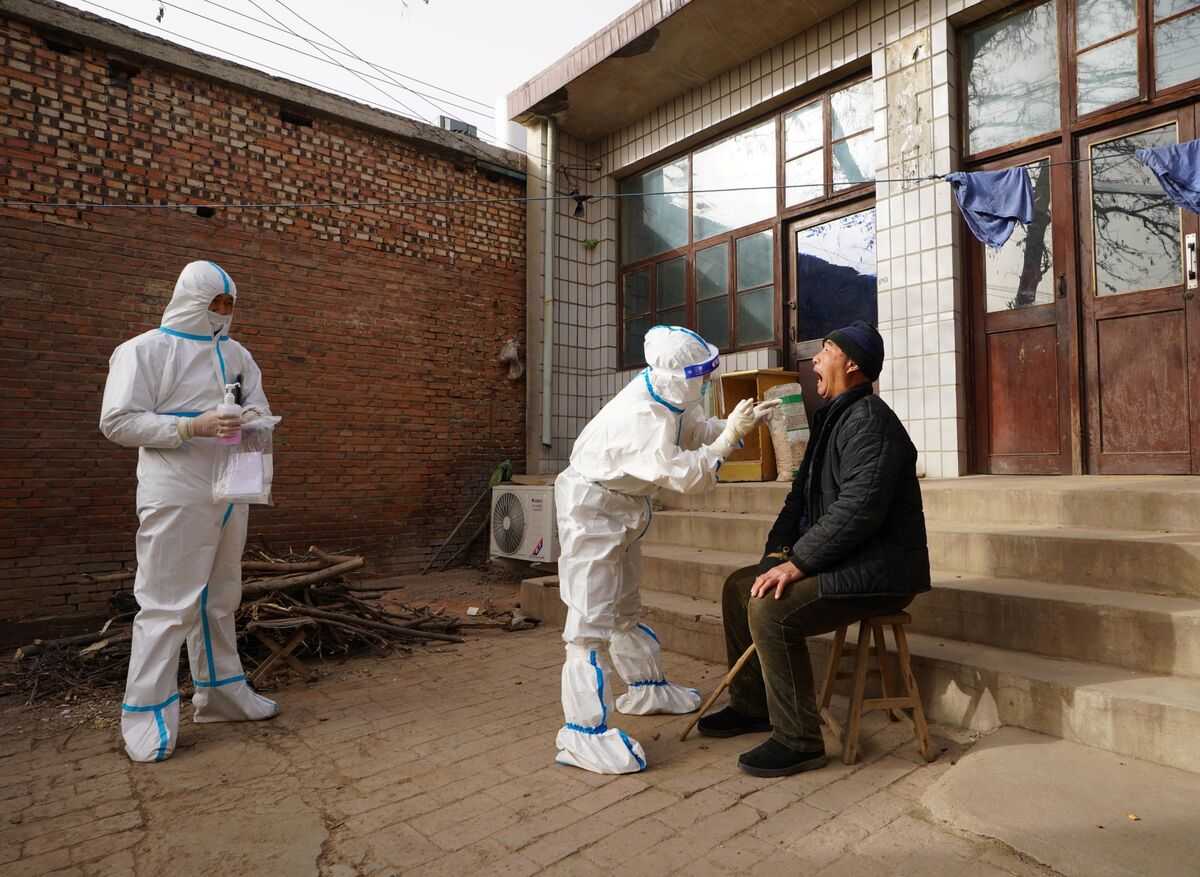

A villager in Shizhuang village undergoes Covid-19 testing in Shijiazhuang city, Hebei province, Jan. 12.
Photographer: Xing Guangli / Xinhua via Getty Images
Photographer: Xing Guangli / Xinhua via Getty Images
China reported its first death from the coronavirus in nine months, as a new flare-up in the country spreads to more regions ahead of the Chinese New Year holiday.
The country registered 124 new local infections on Thursday, the highest number since March. Of these, 81 were found in Hebei, a province around Beijing that lies at the center of the newest cluster. The remaining 43 cases were discovered in China’s northeastern Heilongjiang Province.
The fatality was a woman with an underlying condition, Xinhua news agency said, citing Hebei’s health committee. China hasn’t had a death from Covid-19 since April as the country successfully wiped out clusters after curbing the first wave of infections a year ago.
However, the latest outbreak, which has spread across eight provinces, emerges as one of China’s biggest challenges since the first wave in Wuhan city. The virus appears to “last longer, spread farther, spread faster, with a higher percentage of elderly and rural patients,” health officials said in a briefing Wednesday.
Winter conditions have challenged many countries, including neighboring Japan and South Korea, which had previously contained the virus well, as cold temperatures keep people indoors in unventilated places, stimulating the spread of the pathogen.
China’s new outbreak, while small compared to those in other countries such as the US and UK, is of concern as it comes less than a month before the New Year’s Eve celebration, in which hundreds of millions of Chinese travel to meet with families. The country advises its people to avoid unnecessary travel around the holidays.
Three cities are currently locked in Hebei. Flights and trains have been suspended and passenger cars are discouraged from leaving the city limits at border checkpoints. The scene is reminiscent of the Wuhan lockdown that happened almost a year ago, which was the first broad signal to the world of the seriousness of Covid-19.
Hebei has begun a second round of mass testing for select cities after testing tens of millions of people and detecting more than 300 positive cases in the first round earlier this month.
In contrast to the chaos of the Wuhan outbreak a year ago, local governments seem to be acting quickly to help residents stuck trying to secure food supplies. Officials are insist on rapid delivery of milk to processors and chickens to farms, while also controlling vegetable prices. Still, according to Messages circulated on social media are causing food prices to rise in local markets, causing unrest.
Hebei’s proximity to Beijing also puts the Chinese capital’s nerves to the test. Beijing has escalated prevention and social distance measures that haven’t been seen for months.
Taxis and auto-calling apps are pushing for mandatory health code scanning to speed up contact tracking if an infection is found. Stricter controls are required at residential complexes, restaurants and other public places. Some schools have asked parents to keep their children at home until after the holidays.
– With help from Claire Che